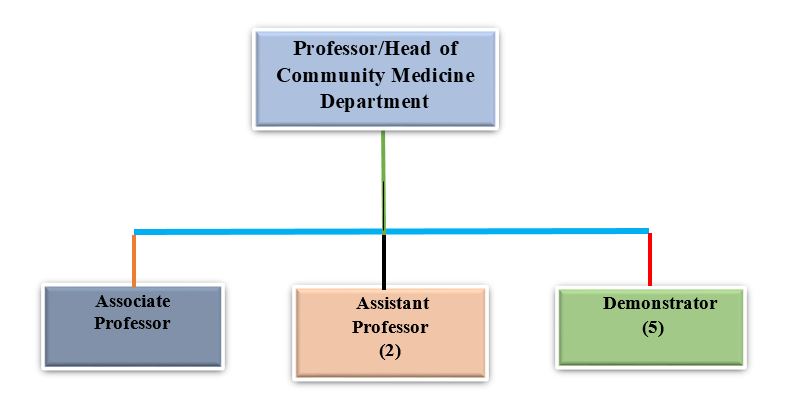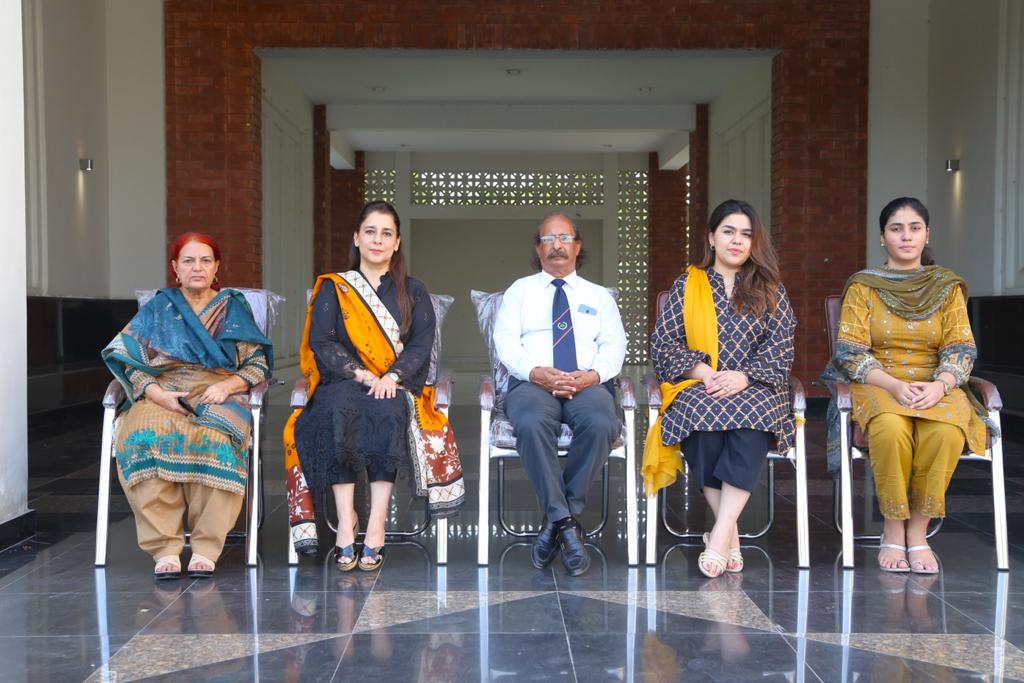Faculty Members
Positional Organogram


For further updates, keep visiting our website.
Health care has been declared as fundamental human right. This implies that the State has responsibility for health of its people. National Governments all over the world are striving to expand and improve their health services. The present concern in both developed and developing countries is not only to reach the whole population with adequate health care services, but also to secure an acceptable level of health for all people. In the last quarter of 20th century the International health agencies e.g WHO and UNICEF have been working on the goal of “Health For All”. The left over agenda of HFA was addressed under the Millennium Development Goals (MDG) and now the gaps of the targets of MDG’s are incorporated in the new International agenda of Sustainable Development Goals (SGDs). The current century has been declared as century of health promotion, but the first quarter of the 21st century is meant to cope with “The Double Burden of Disease” in the developing countries including South East Asia. The developing world is facing the old burden of infectious/ communicable diseases and additional burden of slow emerging epidemic of non-communicable diseases. The health of the population of Pakistan has improved in the past three decades, but the pace of improvement has not been satisfactory. Today Pakistan lags well behind the averages for low-income countries in key indicators, including infant and child mortality and total fertility rate. Poor health status is in part explained by poverty, low level of education (especially for women), and the low status of women in large segments of society, and inadequate sanitation and potable water facilities. But it is also related to serious deficiencies in the health services, in both the public and private sector. Pakistan is in the transient phase of shifting its policies from Selective Primary Health Care to Comprehensive Primary Health Care and similarly the heath system is under the structural and managerial reforms for decentralization to adopt the new health policies. The current curriculum of Community Medicine has been developed to meet the demands of the current changing scenario of National and International health
To improve health and wellbeing of the community by focusing on promotive and preventive health care.
Propagation of knowledge and skills of Community Medicine aiming to produce Medical Graduates who work for maintenance and improvement of health of communities through a multidisciplinary approach
Applying for accreditation with College of Physicians & Surgeons of Pakistan (CPSP) for post-graduate studies (FCPS) in Community Medicine.
